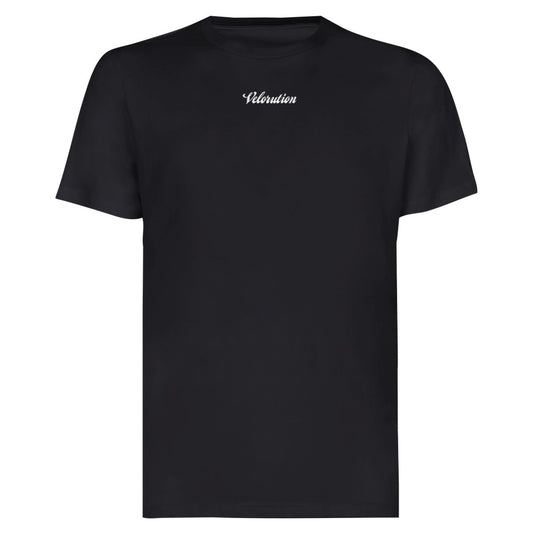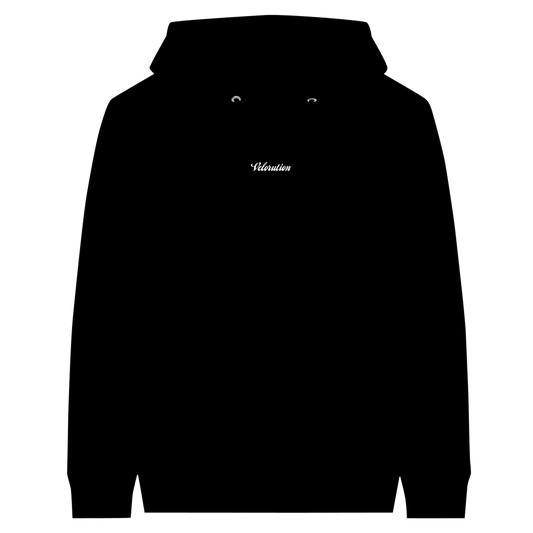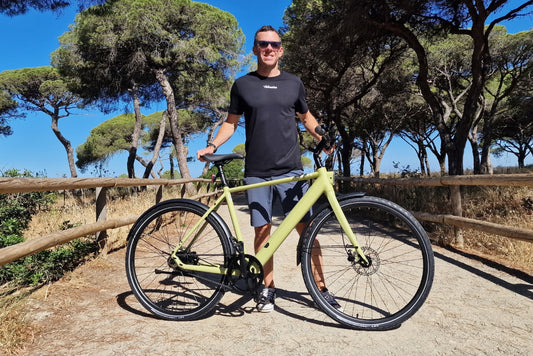Cycling is one of the best exercises you can do, combining fitness, health, and stamina improvement with the ability to travel.
However, many heavier riders are unsure about the bicycle weight limit.
In this guide, we’ll answer the question, “How much weight can a bike hold?” and reveal the weight limits for various types of bikes.
Understanding Bicycle Weight Limits
Bicycle weight limits vary based on their type, geometry, materials, and components.
Generally, most bikes have a weight limit between 275 lbs (125 kg) and 300 lbs (136 kg).
Below is a table that can be used as a general guide.
However, it's essential to check with the manufacturer before making a purchase since different brands have varying weight capacities.

Bicycle Weight Limit (in lbs)
|
Type of Bike |
Weight Limit |
|
Hybrid bike |
300 – 350 lbs |
|
Road bike |
220 – 275 lbs |
|
Mountain bike |
300 lbs |
|
Fat bike |
300 – 400 lbs |
|
Gravel bike |
275 – 330 lbs |
|
City bike |
300 lbs |
|
Folding bike |
190 – 280 lbs |
|
Electric bike |
220 – 400 lbs |
Bicycle Weight Limit (in kg)
|
Type of Bike |
Weight Limit |
|
Hybrid bike |
136 – 159 kg |
|
Road bike |
100 – 125 kg |
|
Mountain bike |
136 kg |
|
Fat bike |
136 – 181 kg |
|
Gravel bike |
125 – 150 kg |
|
City bike |
136 kg |
|
Folding bike |
86 – 127 kg |
|
Electric bike |
100 – 181 kg |
Most good brand bikes are robust, especially fat, hybrid, and mountain bikes.
However, if you have a larger body type, there are several things to consider beyond the weight limit.

Key Factors for Heavier Riders
Wheels
- Strength: Smaller wheels (26” or 27.5”) are generally stronger than larger ones (29”), though this depends on the make and materials.
- Spokes: Ensure at least 24 spokes on the back wheel, which supports more of your weight.
Tyres
- Thickness: Thicker tyres provide more stability and cushioning, especially for off-road riding.
- Pressure: Wider tyres allow for riding at lower pressures, enhancing comfort.
Frame
- Material: Frames made from aluminum or steel are better for heavier riders. Steel is the strongest but heavier, while aluminum alloy is durable and lighter.
Brakes
- Quality: Reliable brakes are essential for heavier riders. Disc brakes, particularly mechanical ones, provide more braking power and are easier to maintain.
Suspension
- Comfort: Good quality suspension enhances comfort on both road and off-road rides. Regular maintenance is crucial.

How Much Weight Can You Lose by Cycling to Work?
Heavier individuals burn more calories than average-sized people.
A 30-minute ride can burn 300 or more calories.
You will likely lose weight if you cycle to work three or more times per week and maintain a balanced diet.
The World Health Organization recommends at least 150 minutes of moderate weekly exercise, easily achievable with regular cycling.
Most Comfortable Types of Bike for Overweight People
For overweight riders, choosing a bike with wider tyres, such as a fat or mountain bike, offers more comfort.
An upright riding position is also more comfortable than a bent-over position. Remember, you can modify a bike to suit your needs, such as changing the saddle, tyres, or handlebars.
Fat Bikes: With tyres measuring four to five inches, fat bikes are designed for all-terrain riding and offer exceptional cushioning and comfort. They typically handle weights between 300 and 400 lbs (136 and 181 kg).
Mountain Bikes: Featuring large tyres with good grip and suspension, mountain bikes provide a cushioned ride ideal for heavier individuals. They usually have a weight limit of around 300 lbs.
Gravel Bikes: Gravel bikes, also known as adventure bikes, are a hybrid of road and mountain bikes. They offer comfort and speed across different terrains and generally support weights between 275 and 330 lbs (125 and 150 kg).
Electric Bikes for Heavy Riders
Electric bikes can be an excellent option for heavier individuals looking to get fit or lose weight.
E-bikes assist with pedaling, making longer and more frequent rides more attainable. Studies show that electric bike riders cycle more often and for longer distances.
An electric bike burns approximately 25% fewer calories than a regular bike but encourages regular use, helping with fitness and weight loss.
ALSO READ THIS: E-Bikes for Heavy Adults (Top 6)









